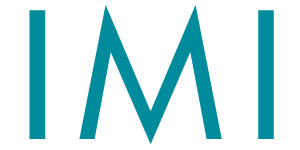Anterior cruciate ligament (ACL)
Integral to your stability, your anterior cruciate ligament is one of the most important bands of tissue in your knee.
This ligament is one of your body’s most essential parts for performing any kind of sport. But in the midst of action, when you’re required to run, stop or change direction, it may become sprained or torn.
This ligament can be partially torn, fully torn or torn away from the bone (avulsed). If the ligament is fully torn or avulsed, it will require surgery in order to heal. Minor damage can heal on its own, but partially torn tendons will need support further support from an osteopaths.
You may hear a popping sound when the damage occurs, but not always.
Key signs of damage to the ACL are swelling, pain and an inability to move the affected knee.
With partial or minor tears the damage may be less obvious. Your knee may be tender and you might find it hard to bear weight on it.
Ice and rest can provide immediate support. A partially torn ACL requires physical therapy.
Our osteopaths evenly build strength in the muscles supporting your knee to improve your stability. It’s essential that a trained professional helps you rebuild strength as normal gym activities may risk further injury.
An ACL injury can cause misalignment of your bones, which can put additional pressure on your recovering knee. Our osteopaths identify and treat these issues effectively.
They assess weakness or restrictions in your lower back, hips and ankles that may have led to injury to reduce your risk of re-injury. To prevent further sporting injuries, training techniques can be given.
Physiotherapy can expedite recovery.
Acupuncture may also reduce pain, increasing your range of movement as you recover.
Ensure that your diet supports your healing process. Some herbs and spices, like turmeric can help. Adding this to your diet and boosting your fresh fruit and vegetable intake will promote integrated and sustained healing. For dietary recommendations specific to your needs, we recommend you chat with one of our naturopaths.
What’s next?
If you have a damaged ACL, we can help.
Bring your body back into balance with our osteopaths and chiropractors. Connect with us below, and we'll be in touch shortly.
